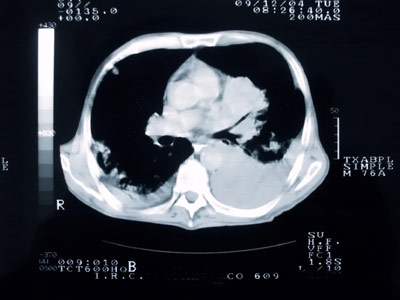Copper Cancer: Copper may cause cancer
and tumor chemotherapy resistance
 Researchers found copper blood levels were lower in patients
without cancer. They state copper is involved in the development of cancer. Analysis of patients with breast
cancer, colon cancer and lung cancer showed that serum copper was higher in patients not responding to
chemotherapy compared to patients whose tumors responded to chemotherapy treatment. Additional research has identified the cellular ATP7A and ATP7B related drug
transport systems as the source of copper induced cancer tumor resistance to chemotherapy. Researchers found copper blood levels were lower in patients
without cancer. They state copper is involved in the development of cancer. Analysis of patients with breast
cancer, colon cancer and lung cancer showed that serum copper was higher in patients not responding to
chemotherapy compared to patients whose tumors responded to chemotherapy treatment. Additional research has identified the cellular ATP7A and ATP7B related drug
transport systems as the source of copper induced cancer tumor resistance to chemotherapy.
An extreme deficiency or excess
of any nutrient in our body, including water will cause a health problem. The essential nutrient copper is not
any different. It is required for many processes in the body. A deficiency is life threatening.
Copper excess increases the risk of cancer, atherosclerosis, oxidative damage, Alzheimer’s, Parkinson’s and a host of other diseases.
Sources of high amounts of
copper include some dietary supplements, drinking water, bath water and shower water. A person with cancer
should test their urine and blood for copper.
A Heavy Metal Screening Test is available for home urine testing. It’s
difficult to get a doctor to order and find a lab that can do a copper, ionized (free) copper and copper bound
to ceruloplasmin. The ionized copper is the most difficult test to
find.
Copper chelation reduces the
body’s production of tumor blood vessel growth factors (angiogenesis) and reduces tumor growth and small blood vessel density in animal studies.
Human studies of oral chelation drugs are currently underway.
Chelation should be done with
caution under guidance of a health care professional. I know of one person that went into atrial fibrillation
due to magnesium deficiency caused by unsupervised daily, oral, non-prescriptioni chelation. Chelation
products will bind and remove toxic metals and essential minerals from your body, food and supplements.
You should monitor copper and mineral levels and adjust dosages as indicated.
References
The role of copper in
drug-resistant murine and human tumors. Majumder S, Chatterjee S, Pal S, Biswas J, Efferth T, Choudhuri SK.
Biometals. 2008 Oct 28.
Copper transport systems are
involved in multidrug resistance and drug transport. Furukawa T, Komatsu M, Ikeda R, Tsujikawa K, Akiyama
S. Curr Med Chem. 2008;15(30):3268-78.
Pancytopenia complicated
with peripheral neuropathy due to copper deficiency: clinical diagnostic review. Imataki O, Ohnishi H,
Kitanaka A, Kubota Y, Ishida T, Tanaka T. Intern Med. 2008;47(23):2063-5
Induction of tumor cell
apoptosis by taurine Schiff base copper complex is associated with the inhibition of proteasomal activity.
Zhang X, Bi C, Fan Y, Cui Q, Chen D, Xiao Y, Dou QP. Int J Mol Med. 2008 Nov;22(5):677-82.
Serum zinc and copper status
in dyslipidaemic patients with and without established coronary artery disease.Ghayour-Mobarhan M, Taylor
A, Kazemi-Bajestani SM, Lanham-New S, Lamb DJ, Vaidya N, Livingstone C, Wang T, Ferns GA.
Clin Lab. 2008;54(9-10):321-9.
Mechanism of the antioxidant
to pro-oxidant switch in the behavior of dehydroascorbate during LDL oxidation by copper(II) ions. Horsley
ET, Burkitt MJ, Jones CM, Patterson RA, Harris LK, Moss NJ, del Rio JD, Leake DS. Arch Biochem Biophys. 2007 Sep 15;465(2):303-14.
Cellular lipid metabolism is
influenced by the coordination environment of copper. Kennedy DC, Lyn RK, Pezacki JP. J Am Chem Soc. 2009 Feb 25;131(7):2444-5.
Copper(II) binding to
alpha-synuclein, the Parkinson's protein. Lee JC, Gray HB, Winkler JR. J Am Chem Soc. 2008 Jun 4;130(22):6898-9.
New strategy of
antiangiogenic therapy for hepatocellular carcinoma. Wu XZ. Neoplasma. 2008;55(6):472-81
Phase I study of copper-binding
agent ATN-224 in patients with advanced solid tumors.Lowndes SA, Adams
A, Timms A, Fisher N, Smythe J, Watt SM, Joel S, Donate F, Hayward C, Reich S, Middleton M, Mazar A, Harris
AL. Clin Cancer Res. 2008 Nov
15;14(22):7526-34.
|


 Researchers found copper blood levels were lower in patients
without cancer. They state copper is involved in the development of cancer. Analysis of patients with breast
cancer, colon cancer and lung cancer showed that serum copper was higher in patients not responding to
chemotherapy compared to patients whose tumors responded to chemotherapy treatment.
Researchers found copper blood levels were lower in patients
without cancer. They state copper is involved in the development of cancer. Analysis of patients with breast
cancer, colon cancer and lung cancer showed that serum copper was higher in patients not responding to
chemotherapy compared to patients whose tumors responded to chemotherapy treatment.






